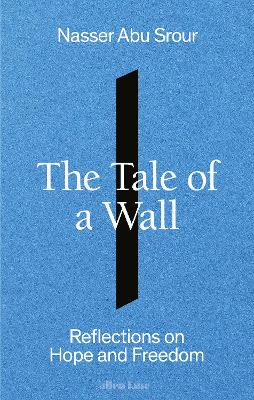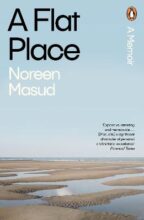
The Tale of a Wall
Nasser Abu Srour, Luke Leafgren
£18.99
Out of stock
Description
LONGLISTED FOR A NATIONAL BOOK AWARD
A Palestinian prisoner’s memoir of thirty years’ captivity, and a love letter to the wall that encircles and comforts him
This is the story of a wall that somehow chose me as the witness of what it said and did
Nasser Abu Srour grew up in a refugee camp in the West Bank, on the outskirts of Bethlehem. As a child, he played in its shadow and explored the little world within the camp. As he grew older, he began questioning the boundaries that limited his existence. Later, sentenced to life in prison, with no hope of parole, he found himself surrounded by a physical wall.
This is the story of how, over thirty years in captivity, he crafted a new definition of freedom. Turning to writings by philosophers as varied as Derrida, Kirkegaard and Freud, he begins to let go of freedom as a question that demanded an answer, in order to preserve it as a dream. The wall becomes his stable point of reference, his anchor, both physically and psychologically.
As each year brings with it new waves of releases of prisoners, he dares to hope, and seeks refuge in the wall when these hopes are dashed. And, in a small miracle, he finds love with a lawyer from the outside – while in her absence, the wall is his solace and his curse.
A testimony of how the most difficult of circumstances can build a person up instead of tearing them down, The Tale of a Wall is an extraordinary record of the vast confinement and power of the mind.
Publisher Review
The Tale of a Wall is the reason we have literature. Nasser has made art out of poison with his honesty and golden pen. He brings to light the specificity of experience of the Palestinian prisoner in a manner that makes every reader think about the incarcerated in their own countries without forgetting Palestine. It helps us understand the consequences on others when we do not wield whatever power we each hold for solidarity. A profound and important work — Sarah Schulman A stunning book. A poetic and remarkable account of decades of imprisonment and the effect it can have on the mind, body and soul. This is a story of unimaginable loss, but also of survival — Sally Hayden Nasser Abu Srour doesn’t allow his long incarceration in an Israeli prison to break his spirit. He turns to the wall of his cell that is intended to confine him into his path to freedom, and in the process, out of the darkness of his cell produces a luminous memoir — Raja Shehadeh, author of We Could Have Been Friends, My Father and I: A Palestinian Memoir A unique, lyrical exploration of what his inhumane confinement has taught him about resistance, love, lies, forgiveness, and the complicated struggle for liberation of his fractured, occupied land. Rather than allow the many walls surrounding him from childhood to break him down, he has turned them into darkly luminous companions on a journey into the heart of cruelty and redemption — Ariel Dorfman, author of The Suicide Museum Fierce and lyrical, Nasser Abu Srour’s memoir bears witness to struggle and resilience-both his own, and that of the Palestinian people. It’s also a devastating testament to the power of hope, and of its loss — Claire Messud In contemplating the meaning of freedom, and the prison walls enclosing him, Nasser Abu Srour has produced a richly emotional and affecting memoir. His poetic prose, lyrically translated by Luke Leafgren, ranges far beyond physical confines to evoke steadfastness and universal human dignity, through the intellectual curiosity of a writer ‘born into a family on the margins, living in a marginal place filled with marginal people.’ Its resonance, and Abu Srour’s vision, are far from marginal — Matthew Teller, author of Nine Quarters of Jerusalem An extraordinary memoir. Abu Srour is not just a witness of his personal life but a witness to one of the major tragedies of our times — Amara Lakhous, author of Clash of Civilizations Over an Elevator in Piazza Vittorio Abu Srour’s memoir is more than a tale of prison. His unflinching prose reveals a powerful truth: human beings are compelled to tell our stories in order to affirm our existence in an unjust world. Ultimately he captures both the individual and collective spirit of Palestinians who, to this day, continue to resist dispossession, disillusionment, and despair — Sahar Mustafah Here, at a historical moment when Palestinian prisoners are again discussed only as a collective political lever, Nasser Abu Srour writes from Hadarim Prison about love, endurance, loyalty, and freedom. His voice rises above the wall of his desert cell, above his confession-under-torture and thirty years in the Israeli penal system, above his life sentence and Israel’s broken promise to release him during the Obama-era peace negotiations. Fierce, lyrical, and defiantly beautiful, his testimony is full of generosity and white-hot courage. He turns his imprisoning wall into an instrument of his soul’s freedom. For the reader, that wall becomes a mirror: an instrument of empathy and conscience. You will come away with a heart full of resolve-to work for solidarity, justice, and mercy — Sarah Cypher It is rare to come across a book with such astonishing generosity and clarity. The Tale of a Wall is beautiful for its ability to examine the harsh realities of oppression with lush prose that creates its own uncompromising terrain. Nasser Abu Srour’s story, which he wrote while condemned to a lifetime sentence in an Israeli prison, is further proof that no wall can restrain the imagination, no bullet can kill the idea of freedom — Maaza Mengiste
Find this book on the following lists
-
April 2024 New Releases: Biography
Browse The List
Book experts at your service
What are you looking for?
